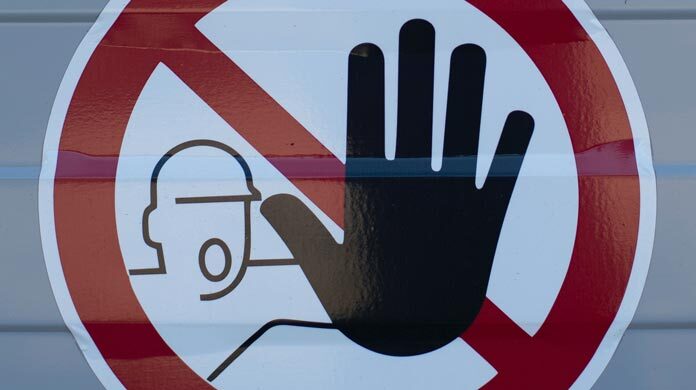
Article contributed by Paul P. Rooney and Nicole M. Vescova, Ellenoff Grossman & Schole LLP
As the 2020 election campaigns progress and politics remain a constant source of debate, employers are sure to be faced with politics in the workplace. New York hospitality establishments must remember to tread carefully when curtailing or prohibiting such activity.
As most already know, employers are prohibited from taking adverse actions against employees on the basis of protected characteristics such as race, gender, or religion under federal, state, and city law. While federal law does not expressly prohibit discrimination on the basis of an employee’s politics in the private employment context, both state and federal law impose limitations on how employers may respond to or limit their employee’s political activity both inside and outside of the workplace.
New York Labor Law
Section 201-d of the New York Labor Law, known as the “Legal Activities Law,” makes it unlawful for employers to take adverse employment action against an employee for their political activities outside of working hours, off of the employer’s premises, and without use of the employer’s equipment or other property. “Political activities” include running for public office, campaigning for a candidate for public office, or participating in fundraising activities for the benefit of a candidate, political party, or political advocacy group. This law does not protect employees who engage in political activities during their working time. However, such activity may be protected under federal law as explained below.
Employees are not protected when their political activity creates “a material conflict of interest related to the employer’s trade secrets, proprietary information or other proprietary or business interest.” While the interpretation of this provision is largely undeveloped in the political activities context, a federal court has previously stated that “although an employer ordinarily may not discharge an employee for lawful off-hour recreational activities, an employer may discharge an employee for conduct that is detrimental to the company or that impacts an employee’s job performance.” Thus, an employer could take adverse action against an employee for their otherwise protected off-duty political activity if that activity materially conflicts with the employer’s business interests. While on its face the statute applies equally to all levels of employees, including upper management, it is recommended that employers seeking to rely on this exception only do so in situations where the employee substantially influences or impacts the employer’s business interests, such as where the employee serves as a representative of the restaurant’s brand.
Federal Labor Law
The National Labor Relations Act (“NLRA”) makes it unlawful for employers to prohibit employees from discussing terms and conditions of employment, or engaging in concerted activities for the purpose of mutual aid or protection. When there is a direct nexus between employment-related concerns and the specific issues that are the subject of an employee’s political activity, that political activity is protected under the NLRA.
For example, if employees are discussing why a candidate is better for them as “workers,” then the NLRA protects their discussion and an employer should not prohibit it. Similarly, the NLRA protects employees discussing a certain candidate’s policies that relate to their working conditions, such as a higher minimum wage or universal paid family leave.
The NLRA also protects political activity when employees attempt to improve their lot as a whole through channels outside the immediate employer-employee relationship. For example, last year the National Labor Relations Board General Counsel’s Division of Advice released a memorandum discussing employees’ participation in the “Day Without Immigrants” demonstration. It concluded that the employees’ participation was protected concerted activity because it was motivated by mistreatment the employees experienced at work, as well as a response to the crackdown on undocumented immigrants which threatened the job security of unauthorized employees. Because these employees had previously made their employer aware of their grievances and were protesting exactly the same, the strike was considered an effort to improve the terms and conditions of employment. This is activity protected under the NLRA, regardless of whether the employees are represented by a union or not.
That said, employees do not have free reign to ignore work responsibilities and use political activities as an excuse. Protected political activity during working time is still subject to restrictions imposed by lawful, neutrally-applied, work rules. According to the Wall Street Journal, even Google, which famously encourages its employees to engage in debate of political and social issues, reminded its employees that “[w]hile sharing information and ideas with colleagues helps build community, disrupting the workday to have a raging debate over politics or the latest news story does not. Our primary responsibility is to do the work we’ve each been hired to do, not to spend working time on debates about non-work topics.”
New York Election Law
As a reminder, employees in New York must be provided with paid time off to vote. The New York Election Law, amended earlier this year, requires all employers to provide employees who request leave with up to three (3) hours of paid time off in order to vote in any election, regardless of whether they have time to vote before or after their shift. This amendment could have a major effect on employee scheduling during election days. Under the law, employers may require an employee take their voting time at the beginning or end of their working shift, and that employees provide at least two days advance notice of the need for time off to vote. Employers are obligated to post a notice in the workplace advising employees of their rights a minimum 10 days before every election.
So how should employers proceed?
As the political climate heats up, employers should keep in mind the distinction between protected political activity and unprotected political activity. Unfortunately, these are fact specific situations and the line between protected and unprotected activity is not entirely clear. New York hospitality establishments are advised to seek legal advice before disciplining any employee for their political activity whether on or off duty.
 Paul P. Rooney is a Partner at Ellenoff Grossman & Schole LLP. He specializes in employment law and civil litigation, and advises clients about their legal rights and responsibilities, drafts employment agreements, handbooks, and policies, and performs employment-related corporate due diligence. His cases have included numerous collective actions under The Fair Labor Standards Act, and claims under Title VII of the Civil Rights Act of 1964, and The New York State and City Human Rights Laws. Mr. Rooney has also litigated cases involving covenants not to compete, claims of breach of contract and breach of fiduciary duty, and defamation.
Paul P. Rooney is a Partner at Ellenoff Grossman & Schole LLP. He specializes in employment law and civil litigation, and advises clients about their legal rights and responsibilities, drafts employment agreements, handbooks, and policies, and performs employment-related corporate due diligence. His cases have included numerous collective actions under The Fair Labor Standards Act, and claims under Title VII of the Civil Rights Act of 1964, and The New York State and City Human Rights Laws. Mr. Rooney has also litigated cases involving covenants not to compete, claims of breach of contract and breach of fiduciary duty, and defamation.
 Nicole M. Vescova is an Associate in the Labor and Employment Practice Group. Ms. Vescova represents and advises clients in a variety of labor and employment matters, including workplace issues such as proper pay practice, employee classification, discipline, termination, and leave. Ms. Vescova drafts various employment policies and agreements such as company handbooks, commission agreements, and non-competition and non-disclosure agreements. She also defends employers against wage & hour claims, and discrimination & harassment claims.
Nicole M. Vescova is an Associate in the Labor and Employment Practice Group. Ms. Vescova represents and advises clients in a variety of labor and employment matters, including workplace issues such as proper pay practice, employee classification, discipline, termination, and leave. Ms. Vescova drafts various employment policies and agreements such as company handbooks, commission agreements, and non-competition and non-disclosure agreements. She also defends employers against wage & hour claims, and discrimination & harassment claims.
Paul P. Rooney (prooney@egsllp.com) and Nicole Vescova (nvescova@egsllp.com) can be reached via phone at 212-370-1300.

























